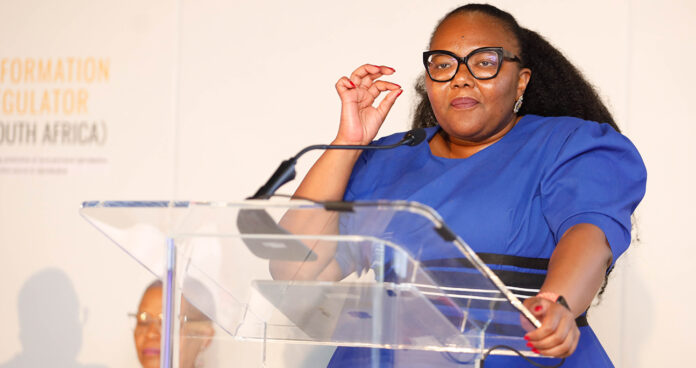The Good Party has accused basic education minister Siviwe Gwarube of being used by rightwing organisations Solidarity and AfriForum to “subvert” the Basic Education Laws Amendment (Bela) Act from the inside.
Party secretary general Brett Herron said that Gwarube, who is a DA member, “appears to be using regulations to undermine the intention of the Bela Act and the South African Schools Act at the direction of these two rightwing organisations”.
The details of the agreement came to light in response to a Promotion of Access to Information Act (PAIA) application for access to Nedlac proceedings after Solidarity declared a dispute over Bela last year.
The law accords the minister an opportunity to write the rules of engagement for Bela’s implementation, and depending on how these regulations are written, they can derail the law.
Herron said in a package that was sent to him as a response to his PAIA enquiry, there was a bilateral agreement between Gwarube and Solidarity, whose wording is the same as that which she wrote in the Bela draft regulations gazetted on Thursday.
He said the wording was contrary to the wording of the act.
“The agreement signed with Solidarity, subverting Bela, raises questions about whose interests she’s actually serving.
“The agreement commits the minister to recommend to the president that prior to implementing changes to schools’ admissions and/or language policies, the interests of the community in ‘the immediate vicinity’ of the public school must be taken into account. The gazetted regulations speak, similarly, to the interests of the “surrounding community”.
He said in her regulations, the minister substitutes “education districts” in the law with “the immediate vicinity”.
He said the intention is to enable schools in formerly white areas to use language of instruction to block children from underprivileged communities from enrolling at a specific school.
“By restricting or constraining admission policies, minister Gwarube’s regulations achieve Solidarity’s aim to protect white privilege.”
The DA and Gwarube have a contentious relationship with the Bela Act. While her party has opposed the Bela Act, Gwarube, though the custodian of the act, boycotted its signing into law last year. She snubbed President Cyril Ramaphosa’s public signing by absenting
herself from the press briefing in protest.
Herron said the Bela Act was meant to reform outdated admissions and language policy frameworks, and dismantle the spatial, linguistic and racial barriers that persist in South Africa’s public education system. “However, the wording of the regulations does not reflect that. Instead, the minister chose language that risks entrenching exclusion.”
He pointed to a regulation that empowers school governing bodies to consider “the demographics and education needs of the surrounding community, including [their] language preferences and the number of compulsory school-age learners”, when the act gives the responsibility to the DBE head of department to determine education districts, which are broader and more inclusive.
“This contradicts the very purpose of the Bela Act, which is to expand access to quality education, not restrict it based on apartheid-era spatial divisions.
“The regulation states ‘a HOD may, after consultation with the governing bodies, determine feeder zones for public schools to control the learner numbers of schools and coordinate parental preferences’, which is not only inconsistent with the law but also restrictive and potentially regressive,” he said, adding that SGBs had used the term “feeder zones” to deny black learners admission to schools in formerly white suburbs.
DBE spokesperson Lukhanyo Vangqa said the regulations were developed by a multi-disciplinary task team and further vetted by the Office of the Chief State Law Advisor as in line with the law.



